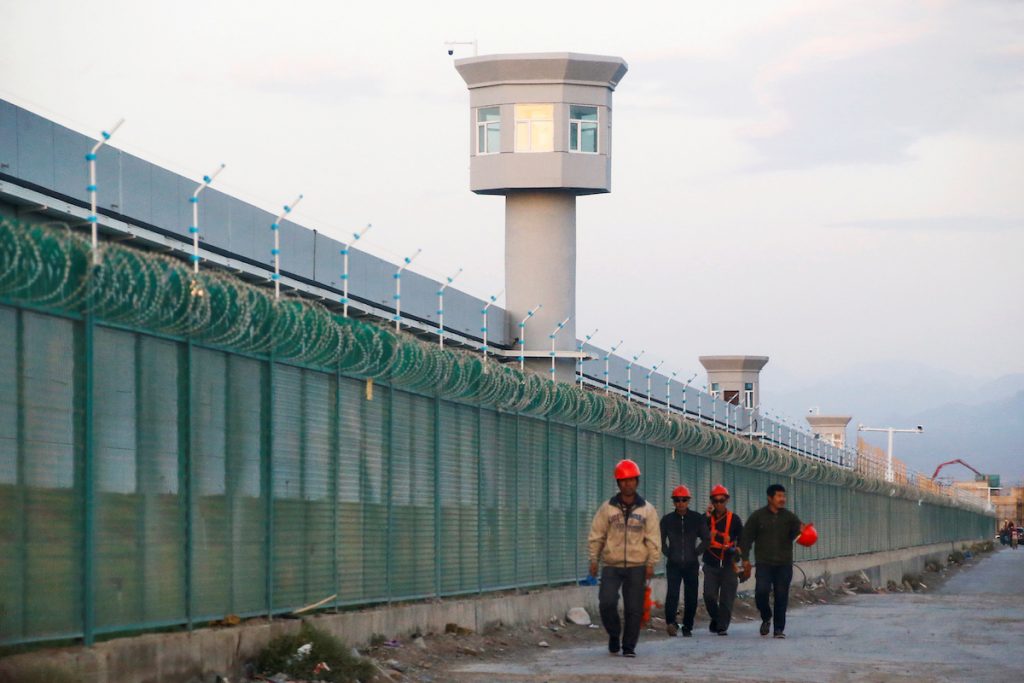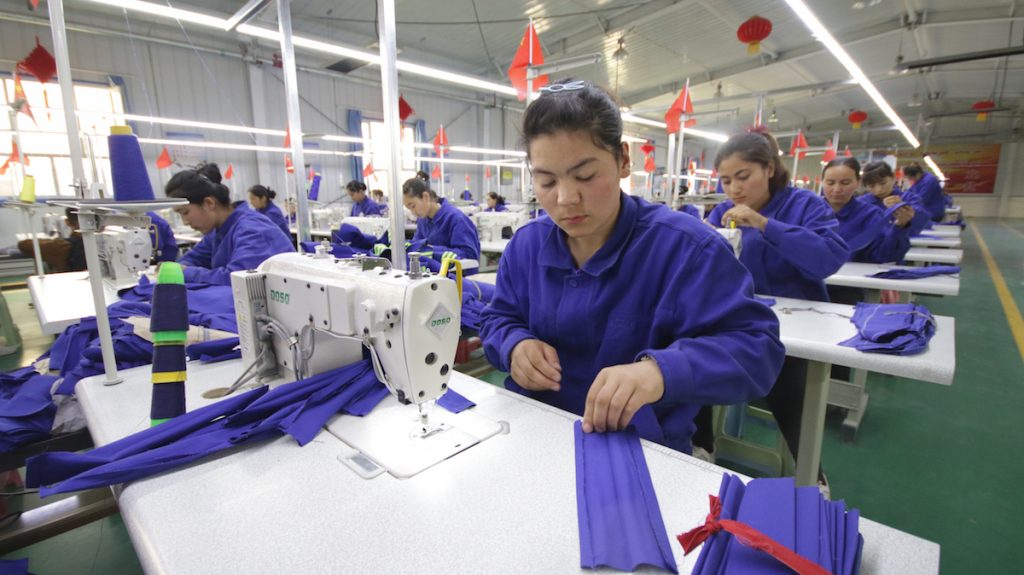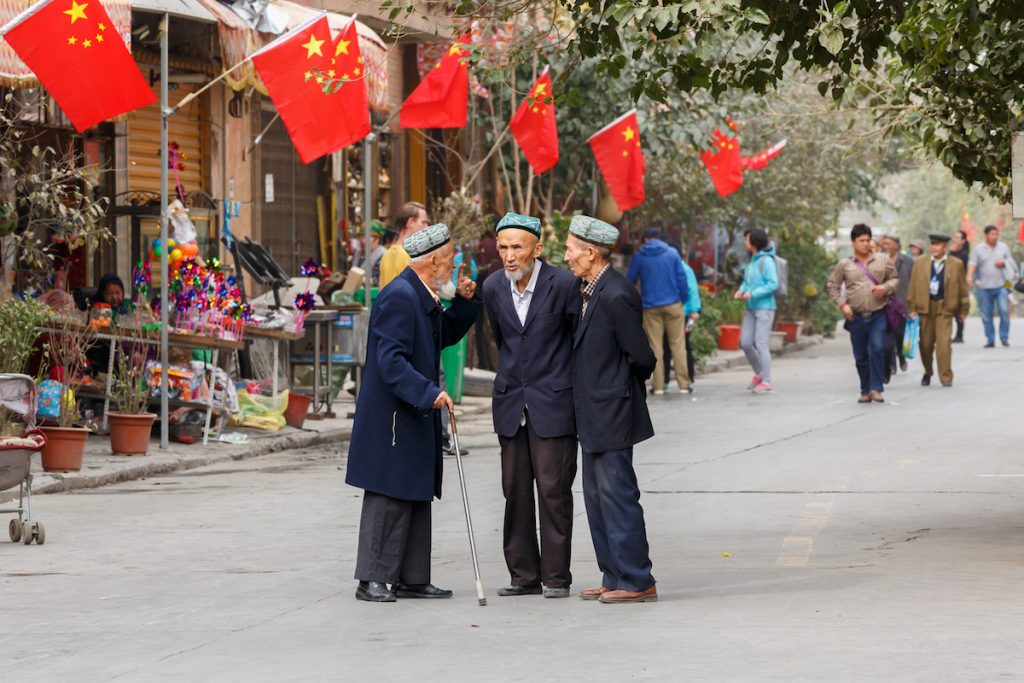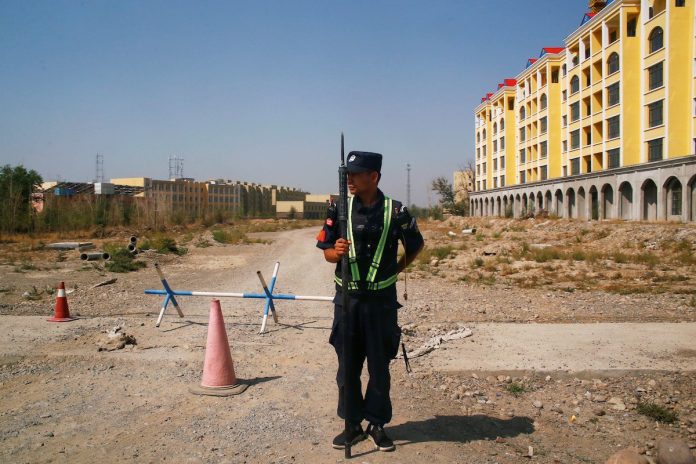A big data program for policing in China’s Xinjiang region arbitrarily selects Turkic Muslims for possible detention. A leaked list of over 2,000 detainees from Aksu prefecture provided to Human Rights Watch (HRW) is further evidence of China’s use of technology in its repression of the Muslim population.
In a statement, HRW said that the big data program, the Integrated Joint Operations Platform (IJOP), apparently flagged the people on the Aksu List, whom officials then evaluated and sent to “political education” camps in Xinjiang.
Up to 1.8 million Uyghurs and other Muslim minorities have been held in a vast network of internment camps in the region since early 2017.
“The Aksu List provides further insights into how China’s brutal repression of Xinjiang’s Turkic Muslims is being turbocharged by technology,” said Maya Wang, senior HRW China researcher.
“The Chinese government owes answers to the families of those on the list: Why were they detained, and where are they now?” she said.
HRW said they first reported on the IJOP in February 2018, noting that the policing program aggregates data about people from various sensory systems in Xinjiang, and flags to officials those it deems potentially threatening. Officials then evaluate these individuals’ “general performance” together with other sources of information and send some to political education camps and other facilities.
HRW said it “reverse engineered” the IJOP mobile app in May 2019 and revealed the dubious criteria this mass surveillance system was programmed to flag, including many lawful behaviors.
The Aksu List, dated around late 2018, is similar to another leaked file, the Karakax List. That list — of people detained for having relatives abroad — dated around June 2019, provides an assessment of whether an individual should remain in detention. The IJOP is also repeatedly mentioned in the Karakax List.
Together the lists provide two snapshots of Xinjiang’s bureaucracy, as it picks and vets its victims in the process of coerced thought transformation: The decision to detain people and the decision to keep them in detention. At both stages, the IJOP system assists officials in selecting targets.

‘Ms. T’
The entry for “Ms. T” on the Aksu List illustrates how the program’s algorithms identify legal behaviors as grounds for detention. It notes that she was detained because the IJOP system had flagged her for “links to sensitive countries.”
It reported that Ms. T had received four calls from a foreign number in March 2017, down to the number of seconds. In other words, the IJOP system is programed to pick out particular behavior, calls to a foreign number, noting the precise duration of the calls. HRW said it called that number and found that it belongs to Ms. T’s sister.
Ms. T’s sister said that Xinjiang police interrogated Ms. T around the time the Aksu List recorded her detention date. The police had specifically asked about her sister because she lives abroad.
Ms. T’s sister said she has had no direct contact with her family in Xinjiang since then but heard via an intermediary that Ms. T — presumably upon her release from a political education camp — was now working in a factory five days a week and allowed to go home only on weekends.
Ms. T’s sister believes Ms. T is being forced to work in a factory against her will, noting that Ms. T had been training for a different career before she was detained.

Regular people detained
HRW’s analysis of the Aksu List strongly suggests that the vast majority of the people flagged by the IJOP system are detained for everyday lawful, non-violent behavior. This contradicts the Chinese authorities’ claims that their “sophisticated,” “predictive” technologies, like the IJOP, are keeping Xinjiang safe by “targeting” criminals “with precision.”
The mass surveillance and arbitrary detention of Xinjiang’s Turkic Muslims violate fundamental rights under China’s constitution and international human rights law. Article 37 of the constitution states that all arrests must be approved by either the procuratorate (the state prosecution agency) or the courts.
But HRW said that their research indicates that neither agency appears to be involved in these detentions. Rather, administrative officials, including police officers, make the sole decision to detain someone. Those facing detention have no right to due process, including access to lawyers and family members, or a chance to stand trial to contest such allegations. The use of intrusive surveillance, including in and around people’s homes, also violates everyone’s right to privacy.
“‘Predictive policing’ platforms are really just a pseudo-scientific fig leaf for the Chinese government to justify vast repression of Turkic Muslims,” Wang said.
The Aksu List: Analysis
According to the Aksu List, the IJOP can flag people at both the prefecture and regional levels, though it is unclear how, or if, those two levels of analysis differ. At both levels, most people were flagged for their relationships, their communications or for being related to or traveling, or staying with someone the authorities consider suspicious.
An examination of the Aksu List suggests that the authorities consider a list of behavior as suspicious such reciting the Quran, as allowing one’s children to study the Quran, going on Hajj, having more children than allowed by China’s family planning policy and in travelling to internationally to “sensitive” countries or even to some areas in China.
Other behavior deemed suspicious that can get people detained are if they have no fixed address or going “off grid” for example “switching off their phone repeatedly” or being missing for periods of time.
Other reasons for being targeted are if someone has relatives in a group the authorities have labeled as terrorist, including the East Turkistan Islamic Movement.
Even being considered being generally untrustworthy and being young; that is, “born after the 1980s” can get someone on the list as would“generally acting suspiciously,” “having complex social ties” or “unstable thoughts,” or “having improper [sexual] relations.”
HRW said that in some cases, the alleged “problematic” behaviors dated to years earlier, revealing broad surveillance of legal and non-violent behavior going back decades. In one case, a man was detained for having studied the Quran in the mid-80s, and having “let his wife wear a veil” in the early 2000s. In another case, a woman was detained for once going to Kashgar, and once staying overnight in Hotan, both in 2013.

Presumed guilty until proven innocent
HRW said that the authorities listed “terrorism” and “extremism,” both perilously over-expansive terms in Chinese law, as the reasons for detaining about 10 percent (or over 200) of the people on the list. Yet the authorities did not allege that these detainees committed, incited, supported, or plotted any acts of violence, much less any acts that would rise to the level of terrorism.
About one in five in this group were tagged for downloading or sharing “terrorism” or “extremism” content. About four in five were listed as being related to someone who had downloaded or shared such content, or to someone who was detained for terrorism or extremism.
The rights group said that an examination of the Aksu List suggests that Xinjiang’s Turkic Muslims are presumed guilty until proven innocent. In one case, a man was sent to political education camp because “suspicion [of him] cannot be eliminated and would require further interrogation.”
The evidence suggests that, consistent with official rhetoric, political education is akin to a form of preventive detention, where people’s behaviors are deemed vaguely suspicious but not criminal. They are being held until their loyalty can be ascertained and, as needed, instilled.
Notably, three cases in the Aksu List suggest that people are treated with different levels of “strictness” depending on their level of obedience, and that people who disobey or “talk back” are placed in areas with stricter management.
HRW said that it appears that the authorities are increasingly sharing personal information across government agencies.
Government reports state that data collected via the IJOP system is also being used for a variety of vetting tasks, from screening applicants for police jobs or public services such as poverty alleviation programs, to picking out model Communist Party members.
In Turpan County, for example, officials vet people using the IJOP system to select politically reliable people to take part in a “labor transfer” scheme; a program that involves organizing and transporting groups of Uyghurs to work in factories elsewhere in China under closely supervised, and often coercive, conditions. The same Turpan County scheme also draws on information gathered from “Physicals for All,” another compulsory data collection program in which medical and health data is collected.
HRW said that the integration of the IJOP system with other government systems, illustrates China’s expansive definition of security and perceived need for extensive surveillance and control.









